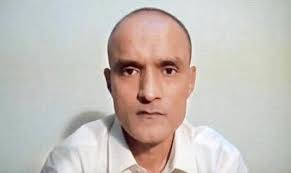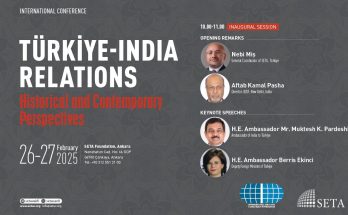
Maintaining its stand that Khulbhushan Yadav, the former Indian Navy officer detained on charges of espionage, is an Indian “spy”, Pakistan has denied India consular access to the death row prisoner in its counter-memorial submitted to the International Court of Justice (ICJ).
India has called the death sentence a “farcical process”. “We also appealed to ICJ in May as we believe Vienna convention was being violated. We do reiterate our position that Jadhav remains in Pakistan and is facing death sentence given through a farcical process and on concocted charges,” Ministry of External Affairs spokesperson Raveesh Kumar said.
“Lack of explanation on how a serving naval commander was operating under secondment to Indian spy agency Research and Analysis Wing (RAW) was travelling under an assumed name leads to only one conclusion that India wanted consular access to the information he had gathered,” read the counter memorial submitted by Pakistan.
While India insists that 47-year-old Jadhav was kidnapped from Iran where he was engaged in business post retirement from the Navy, Pakistan has claimed that he was arrested from the troubled Balochistan province on March 3 last year where he allegedly entered from Iran under the name of Hussein Mubarak Patel. Pakistan has long accused India of fanning secessionist forces in Balochistan and believes Jadhav to be working for the Research and Analysis Wing (RAW) of India. Giving consular access would, according to Pakistan, provide India with the opportunity of gathering information from the accused. India has time and again rejected these allegations.
Denying the applicability of the Vienna Convention in this case where a spy is involved and not an ordinary prisoner, Pakistan stated in the ICJ “Only a state which adheres to legitimate actions can request the court to intervene in a matter between two states”.
A Pakistani military court had sentenced Jadhav to death charges of espionage and terrorism in April which prompted India to take the matter to the highest judicial body. While the sentence has been put on hold, Pakistan has asserted that sending a spy to fund terrorist activities on its soil gives no ground for India to appeal to the ICJ. It remains to be seen if the ICJ takes the case forward for a hearing or asks both countries to submit more documents. Meanwhile, Pakistan has allowed Jadhav a meeting with his wife on “humanitarian grounds” on December 25. She will be accompanied by an Indian envoy.
Author Profile
- India Writes Network (www.indiawrites.org) is an emerging think tank and a media-publishing company focused on international affairs & the India Story. Centre for Global India Insights is the research arm of India Writes Network. To subscribe to India and the World, write to editor@indiawrites.org. A venture of TGII Media Private Limited, a leading media, publishing and consultancy company, IWN has carved a niche for balanced and exhaustive reporting and analysis of international affairs. Eminent personalities, politicians, diplomats, authors, strategy gurus and news-makers have contributed to India Writes Network, as also “India and the World,” a magazine focused on global affairs.
Latest entries
 India and the WorldJune 26, 2025Operation Sindoor: India Sheds Restraint, Rediscovers Utility of Force
India and the WorldJune 26, 2025Operation Sindoor: India Sheds Restraint, Rediscovers Utility of Force India and the WorldJune 23, 2025BRICS summit in Rio to focus on Global South, local currency trade
India and the WorldJune 23, 2025BRICS summit in Rio to focus on Global South, local currency trade Africa InsightsJune 11, 2025New Opportunities in India-Japan Cooperation in Africa
Africa InsightsJune 11, 2025New Opportunities in India-Japan Cooperation in Africa India and the WorldMay 23, 2025Post-Operation Sindoor, India reminds Turkey, China of concerns and sensitivities
India and the WorldMay 23, 2025Post-Operation Sindoor, India reminds Turkey, China of concerns and sensitivities







